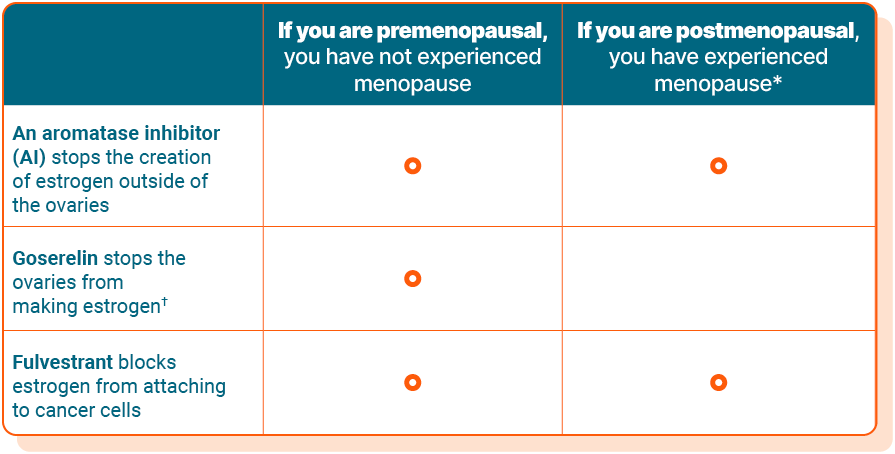Patient Support Line 1-866-433-8000, Monday - Friday: 8:00 AM to 8:00 PM ET

What Are My Treatment Options for Metastatic Breast Cancer?
.
Treating metastatic breast cancer
Knowing your hormone receptor (HR) and human epidermal growth factor 2 receptor (HER2) status is important in metastatic breast cancer (mBC). These are 2 of the factors that your doctor uses to identify treatments that have been proven to work for people like you.
Use this guide to help start a conversation with your doctor
Two types of mBC treatment
mBC treatment options include medicines that slow the growth and spread of tumors. Some treatments move throughout your whole body, and some are focused on a specific location.
Systemic
Systemic treatments move through the bloodstream and treat the entire body.
These treatments include:
Chemotherapy
Hormone therapy
Targeted therapies, like KISQALI + hormone therapy
Local
Local treatments focus on a certain area.
These treatments include:
Surgery
Radiation therapy
Treatment and menopausal status
Sometimes, your doctor may prescribe more than one treatment. If one of the treatments is hormone therapy, the type that you take depends on your menopausal status. The table below explains menopausal status and which hormone therapies are appropriate based on it.
†Instead of goserelin, your doctor may prescribe another drug that works in a similar way.
Treating mBC glossary
Learn more about key terms used on this page by tapping or clicking on the words below.


